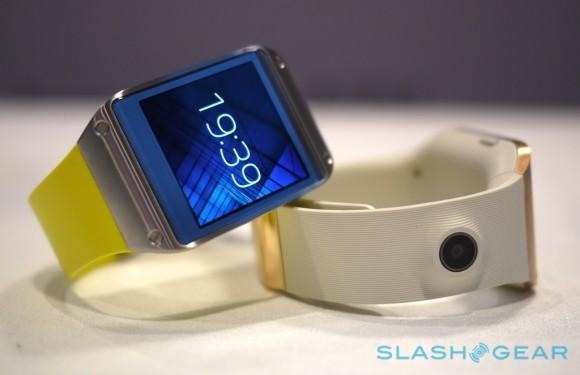Samsung Galaxy Gear "over-spec'd" argues Pebble smartwatch creator
Smartwatches like Samsung's Galaxy Gear and Sony's multiple attempts to break the wearables market are trying too hard and missing the point, Pebble CEO Eric Migicovsky says, arguing that simplicity is the right route to the wrist. "I think everyone is kind of ignoring the things that you need to do with a smartwatch" Kickstarter success Migicovsky said at TechCrunch Disrupt today. "It needs to mesh into your life, it needs to have a long battery life ... and it needs to just not, y'know, be annoying."
Asked where Pebble sees the sweet-spot – and the root of its own success – in wearables, Migicovsky suggests it's down to being realistic about what people actually want from a gadget on their wrist. Although the temptation might be to make it all-singing and all-dancing, in fact that sort of advanced functionality too often ends up making demands on the wearer rather than benefiting them.
"I think that it's mainly about the use case" he suggested. "I think that the hardware needs to kind of flow into the background, and really, the reason why you should put a watch or a smartwatch or a wearable on your body is because it's useful, it solves a problem, and you can really appreciate it in your everyday life. It doesn't force you to change your life around the device, it just kind of meshes."
Pebble raised around $10m on crowdfunding site Kickstarter, and launched to generally positive reviews earlier this year. While Samsung made headlines last week with its Galaxy Gear, the segment has been punctuated with failed attempts for some time, Migicovsky points out.
"Samsung launched a watch last week, Sony has had a watch on the market for the past two years, Motorola has been creating watches. Having competition in the smartwatch space is not new" he said. "I think everyone is kind of ignoring the things that you need to do with a smartwatch. It needs to mesh into your life, it needs to have a long battery life ... and it needs to just not, y'know, be annoying. You don't have to worry about it getting wet, you don't have to worry about it getting banged up. It just works in your life. And I think a lot of competitors – Samsung for example – have created products that, on paper, seem to be these over-spec'd machines, but nobody has really thought about how they fit into your life."

Where Pebble effectively works as a sub-display for a smartphone, allowing wearers to preview text messages and emails, see caller ID on incoming phone calls, and data from select third-party apps such as RunKeeper, Samsung has gone significantly further with its design. The Galaxy Gear has a camera, full color display, hands-free calling support, and even S Voice control, though it gets significantly less battery life: around a day of general use, Samsung has said, rather than the 5-7 days a Pebble will last.
As for alternative wearables like Google's Glass, the Pebble CEO isn't necessarily convinced. "I think the watch is a great starting point" he said. "It's kinda like a low-hanging fruit: it's already a spot on your body that people are comfortable wearing technology."
The next stage for Pebble – 2.0 as it's described – won't be new hardware, however, but new software. The start-up launched with a relatively limited number of apps, aiming to get hardware to users rather than to fully develop the entire experience; the next phase in its development, Migicovsky says is to build out third-party app support to make better use of the space on your wrist.
